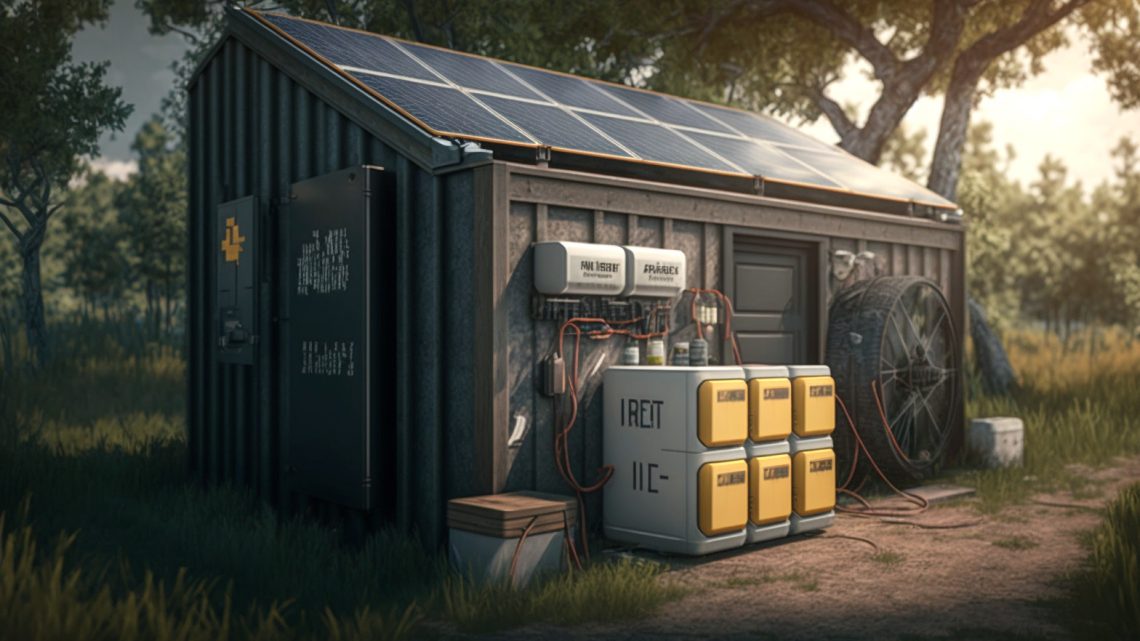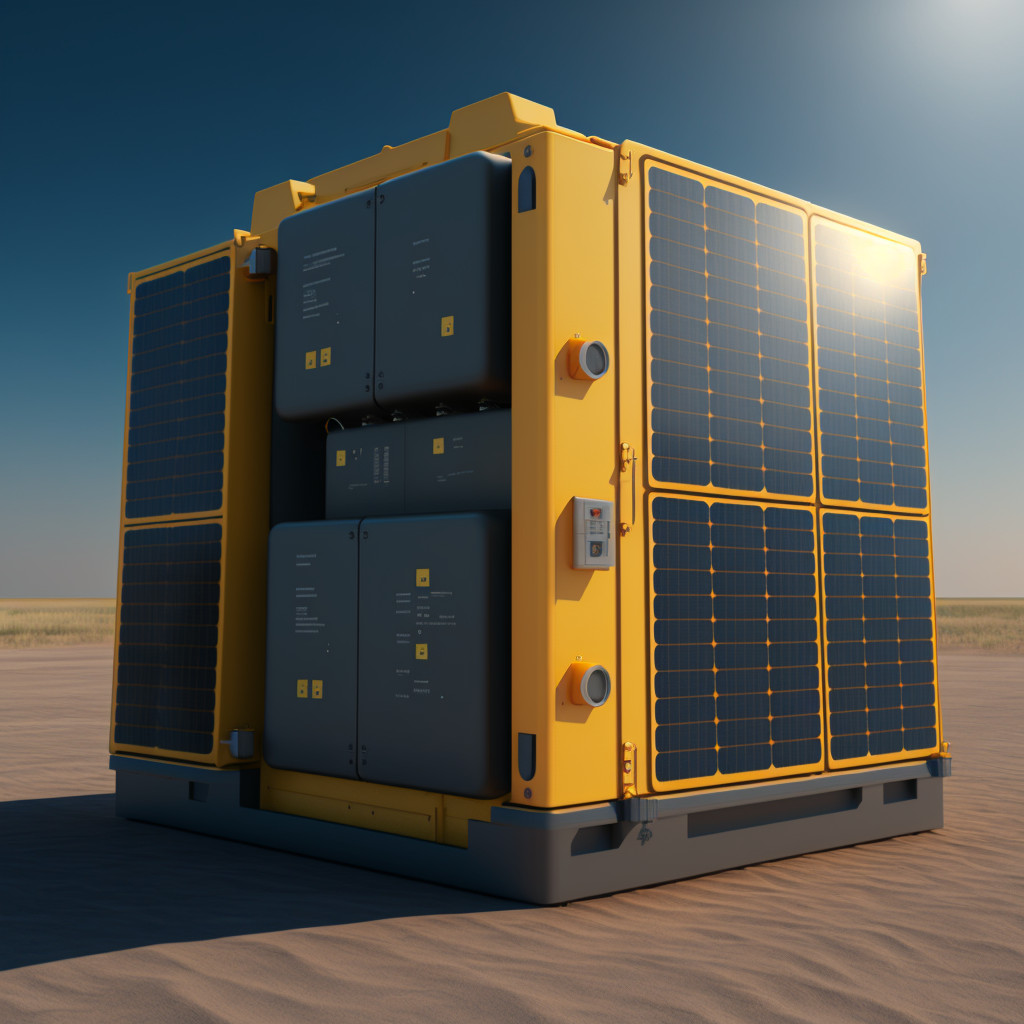
Off-grid vs grid-tied solar system
March 14, 2023What is an Off-Grid Solar Power System and what are its benefits?
Off-grid solar power systems are becoming increasingly popular as a way to produce renewable energy without relying on the grid.
With off-grid solar energy, you can power your home or business using renewable energy sources such as solar panels inverters thanks to batteries.
Grid-tied solar power systems are a great option for those looking for reliable, cost-effective electricity, while off-grid energy storage provides an efficient solution for storing excess electricity produced by renewable sources.
With advances in technology, off-grid energy storage and grid-tied solar power systems provide an efficient and reliable way to generate clean, renewable electricity that can be used anytime.
Off-grid vs grid-tied solar power installation – what are the differences?
Solar power is becoming increasingly popular as a renewable energy source, and many people are now looking into installing their own solar systems. However, understanding the differences between off-grid and grid-tied (on-grid) solar power systems is essential before making any decisions.
In this article, we will discuss the differences between off-grid and grid-tied solar power installation to help you make an informed decision.
We will look at the advantages and disadvantages of each system, as well as their respective use cases. By the end of this article, you should have a better understanding of which system is best for your needs.
Most people do not realize that popular grid-tied solar installations (aka on-grid) requires grid utility to operate. In case of energy shortage they become offline.
From the other hand Off-grid refers to solar power systems that are meant to be used entirely off of the grid (independent) , meaning they rely on no external electricity power source like utility grid.
On the other hand, grid-tied solar power systems are connected and controlled by electric companies via a utility grid. The electric company will provide an electric bill that will compensate the produced and used energy so the utility grid operator is working as some form of “virtual energy storage”.
In grid-tied system (on-grid) there is no local battery storage. If solar energy production is higher than your current needs it is transferred to the grid and grid operator registers this fact with a bi-directional electricity meter.
If solar energy production is lower than your current needs, the utility grid operator sells you energy as usual. Depending on your local terms the billing method may vary.
It could be based on energy units (net-metering) or current market rates of the energy (net-billing)
Regardless of the method of settlement with the energy company – the on-grid (grid-tied) system requires a permanent connection to the utility grid. In the absence of power from the grid – you are not able to use your virtual energy storage.
They will also handle any customer service inquiries related to your system and charge you on a monthly basis.
What Are the Benefits of Installing an Off-Grid Solar Power System?
Solar panel installation is a great way to save on energy costs and create a clean energy source. With the right solar panel installation and low cost energy storage solutions, you can save thousands of dollars each year on your electricity bills.
Additionally, investing in an energy storage system can provide even more cost savings and make your home more efficient than ever before – not only during sunny weather but also at night.
Other big advantage of the off-grid solar power system is that you are not grid tied so in case of blackout you can still have power.
Off-grid solar panels are a great way to generate your own electricity, independent of the grid. To do so, you need to put panels on your roof and then connect them with a battery bank (ESS).
When the sun is shining you will get free power; when it’s cloudy or day time, the system will use battery bank for energy or natural gas as a back up.
Off-grid solar power systems come with an inverter device that converts direct current (DC) from the panel into alternating current (AC) required by our homes and other devices like TVs, microwaves and other home appliances.
How can an Off Grid Solar Power System work with Energy Storage System (ESS) ?
Investing in an off-grid solar battery system along with solar panels installation can be a great way to get the most out of renewable energy.
With a battery backup system, you can store energy from sun for when you need it most and reap the benefits of reliable, clean power.
Use energy from sun at night and cloudy weather
It is now possible to take advantage of the energy from the sun, even at night and on cloudy days.
Energy storage systems (ESS) allow us to capture and store solar energy during peak production times so that it can be used later when needed. This means that we can harness clean, renewable energy even in the worst weather conditions.
Off-grid installation protects you against blackout

From avoiding costly grid outages to reducing your carbon footprint, investing in a solar battery system can provide countless advantages.
Off-grid solar battery systems provide a reliable and renewable energy source during power outages and blackouts because you are independent from the grid utility. Off-grid solar battery systems are available in a range of sizes and capacities that meet your energy needs.
They are easy to install, require no maintenance and can store up to several days of energy.
With this system, homeowners can save money on electricity bills while ensuring their family is safe and secure during times of crisis.
Is Investing in an Off Grid Solar Power System Worth It?
Investing in a home solar system is general a great way to save money on your energy bills and reduce your carbon footprint. By harnessing the power of the sun, homeowners can save up to thousands of dollars in energy costs every year.
Furthermore, with a home solar system, you can benefit from tax credits and other financial incentives that can offset the cost of installation and make it an even more attractive investment.
With all these potential financial benefits, investing in a home solar system is a smart decision for both your wallet and the environment.
Off-grid installation with barrettes are more expensive that simple grid-tied solar installation but they are more technologically advanced and give you complete independence from the energy supplier.
It is difficult to price the cost of independence from grid utility. If you face frequent power shortages in your local area the benefit from off-grid installation is priceless.
It is worth to mention that the cost of a solar system with energy storage would depend on the size, installation materials, and complexity of the system but will will discuss possible options in other article.

don’t try to install a solar system yourself unless you’re an expert. It’s like trying to perform surgery on yourself – it might look impressive in the movies, but trust me, it won’t end well.
have you ever tried installing a solar system yourself? Have you considered the fact that many people do exactly that, and with great success? It’s true that it requires expertise, but isn’t that what we’re striving for in our communities – to empower individuals to take control of their energy production and consumption?
I’d like to share a personal anecdote. I recently visited a community in rural Africa where residents have taken the initiative to install solar systems themselves. Not only did they save money on installation costs, but they also gained valuable skills and knowledge that will benefit them for years to come.
Your comment reminds me of the quote “the best way to predict the future is to create it.” Instead of discouraging people from taking control of their energy production, perhaps we should be inspiring and empowering them to do so. After all, as the article highlights, off-grid solar systems can provide a reliable source of clean energy even in remote areas.
In fact, I’d like to challenge your assertion that installing a solar system is akin to performing surgery on oneself. While it’s true that it requires technical expertise, isn’t that what we’re striving for – to democratize access to renewable energy and empower individuals to take control of their own energy production?
Regarding your comment about the article, I’d like to point out that many people do indeed try to install solar systems themselves, often with great success. In fact, DIY solar installation kits are becoming increasingly popular, making it easier for individuals to take control of their energy production.
Speaking of which, have you heard about the recent developments in San Francisco? According to a recent article, “In 2024, it really is better to run a startup in San Francisco, according to data and founders who’ve relocated. ‘San Francisco Stays on Top: 49% of US Tech Talent Flocks to Bay Area Hub’.” What does this have to do with solar systems? Well, my friend, it highlights the innovative spirit and entrepreneurial drive that’s driving our world forward.
So, I’d like to encourage you to reconsider your stance. Instead of spreading fear and pessimism, let’s inspire hope and positivity. Let’s empower individuals to take control of their energy production, and create a future where clean energy is accessible to all.
As the great Nelson Mandela once said, “the greatest glory in living lies not in never falling, but in rising every time we fall.” So, let’s rise above our fears and doubts, and create a brighter future for ourselves and generations to come.
what if we could make off-grid solar systems as user-friendly as smartphones? If we can create apps that help people navigate complex financial decisions, why can’t we develop tools to simplify the installation process for solar panels?
In fact, companies like Tesla and Sunrun are already making strides in this direction. They’re offering sleek, easy-to-use solar panel systems that even a DIY novice can install.
So, I’d say let’s not discourage people from exploring off-grid options just yet! With some education and the right tools, we can empower homeowners to take control of their energy needs and create a more sustainable future for all.